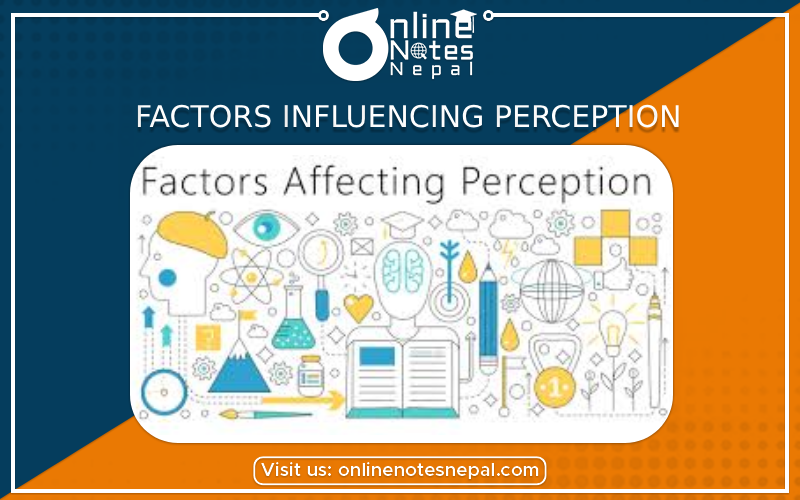Published by: Dikshya
Published date: 26 Jul 2023

What is Perception?
- Perception is the process through which individuals interpret and make sense of the world around them. It forms the foundation for our understanding of reality and significantly influences our thoughts, emotions, and behaviors. The way we perceive the world is shaped by a multitude of factors that interact and influence one another.
These factors can be broadly categorized into
- Biological,
- Psychological,
- Social and cultural influences, each playing a crucial role in shaping our perception.
1. Biological Factors:
Biological factors are deeply ingrained in our physiology and impact how our senses function. For instance, individual differences in sensory acuity, such as visual acuity or auditory sensitivity, can significantly impact the way we perceive stimuli. Additionally, genetic predispositions and neurological conditions can also alter perception, leading to variations in how we process and interpret sensory information.
2. Psychological Factors:
Psychological factors, including past experiences, emotions, and cognitive processes, play a pivotal role in shaping perception. Our prior experiences create perceptual expectations, guiding our interpretation of new stimuli. Emotions can color our perception, influencing whether we perceive a situation as positive or negative. Moreover, cognitive processes like attention, memory, and reasoning filter and process sensory input, further shaping our perception of the world.
3. Social Factors:
Social factors contribute significantly to how we perceive ourselves and others. Social identity theory suggests that our perception is influenced by the social groups we belong to, leading to in-group favoritism and out-group biases. Cultural norms and values also play a key role; what may be perceived as appropriate in one culture may be considered inappropriate in another, leading to cross-cultural differences in perception.
4. Cognitive biases:
Cognitive biases are pervasive psychological influences that can distort perception. Confirmation bias leads us to selectively attend to information that supports our preexisting beliefs, reinforcing them further. Availability heuristic influences our perception by relying on easily accessible information rather than thoroughly evaluating the situation. These biases can lead to skewed judgments and interpretations of events, affecting decision-making.
5. Expectations:
Expectations, both conscious and unconscious, can significantly impact how we perceive the world. The concept of self-fulfilling prophecy suggests that when we expect something to occur, our behavior and interpretations align with that expectation, making it more likely to come true. Similarly, priming, which involves exposure to a stimulus that influences subsequent perceptions and behaviors, can shape how we interpret subsequent information.
6. Media and technology:
Media and technology have become omnipresent influences on perception. The media can selectively present information, shaping public opinion and influencing societal perceptions. Technological advancements, such as virtual reality, can also create simulated environments that affect how we perceive and respond to situations.
7. Environmental factors :
Environmental factors, such as physical surroundings, lighting, and context, also influence perception. The same object may be perceived differently depending on its surroundings or the lighting conditions, demonstrating the dynamic nature of perception.
8.Individual differences:
Individual differences, including personality traits and cognitive abilities, contribute to the diversity of perceptual experiences among individuals. Introverts and extroverts, for example, may perceive social situations differently, with one finding comfort in crowds and the other preferring solitude. Additionally, people with higher cognitive abilities may process complex information differently from those with lower cognitive abilities, impacting their perceptions.
9.Education and learning experiences
Education and learning experiences play a vital role in shaping perception. Formal education provides individuals with knowledge and critical thinking skills, influencing how they interpret and analyze information. Exposure to diverse perspectives and ideas broadens one's understanding, leading to more nuanced and informed perceptions.
In conclusion, perception is a multifaceted process influenced by a wide range of factors. Biological, psychological, social, cultural, and environmental influences all interact to shape the way we perceive and interpret the world. Understanding these factors is essential for promoting empathy, critical thinking, and open-mindedness, ultimately fostering a more inclusive and understanding society.